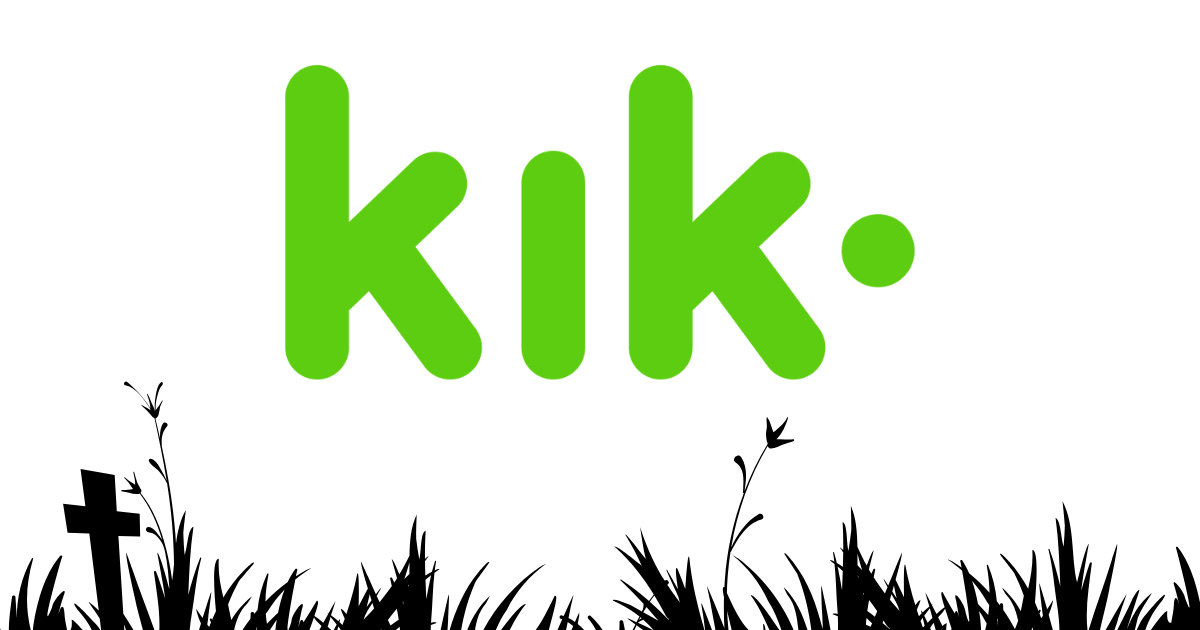
Kik, launched in 2010, quickly amassed millions of users—particularly among teens—by offering free and anonymous instant messaging. Its simple registration process (no phone number required) and array of features, from group chats to built-in web browsing and bot integration, made Kik both a popular app and a source of ongoing controversy. Below, we explore Kik’s journey, its major stumbling blocks, and what others can learn from its challenges.
Kik’s Core Features and Appeal
1. No Phone Number Required
Kik’s anonymity stood out in a crowded messaging space dominated by WhatsApp, iMessage, and other platforms that rely on phone numbers. Users simply created a username, granting a sense of privacy and control.
2. Multi-Format Content Sharing
Beyond text messages, Kik enabled the sharing of photos, videos, GIFs, and links from within its built-in browser—a one-stop shop for digital communication.
3. Social Discovery Tools
Group chats and public chat rooms let users connect with strangers around shared interests, fueling both community building and potential risks.
4. Bot Platform
Brands could develop automated chat experiences, games, or customer service via Kik’s bot ecosystem. This introduced an interactive element that set Kik apart from many other messaging apps.
5. Teen-Focused User Base
At its peak, Kik reported that roughly 40% of U.S. teenagers had used the app, helping it garner up to 300 million registered users.
Major Controversies and Challenges
1. Safety and Privacy Concerns
Anonymity Risks: While anonymity appealed to young users seeking freedom from traditional social networks, it also attracted individuals engaging in cyberbullying, child exploitation, and predatory behavior.
Child Exploitation Cases: Kik was linked to multiple high-profile incidents of grooming and abuse, drawing criticism for insufficient moderation.
2. Regulatory and Legal Pressures
Cryptocurrency Troubles: Kik’s foray into digital currency, Kin, led to legal disputes with the U.S. Securities and Exchange Commission (SEC). In 2019, these legal challenges nearly forced Kik to shut down.
Pressure to Improve Moderation: Global organizations and law enforcement urged Kik to adopt stronger age verification and content-filtering measures, impacting the platform’s operations.
3. Competition in Messaging
Established Rivals: As WhatsApp, Facebook Messenger, Snapchat, and Discord grew in popularity, Kik faced stiff competition in retaining users, especially since many rivals introduced stronger privacy controls or more compelling features.
Evolving User Preferences: Younger demographics began shifting toward multimedia-centric apps like TikTok and Instagram, limiting Kik’s growth potential.
4. Reputation Damage
Negative Media Coverage: Frequent reporting on Kik’s role in predatory behavior led parents, educators, and law enforcement to caution teens about the platform.
Lack of Trust and Moderation: Weak content oversight sowed doubts among the public, further eroding the platform’s reputation.
5. Operational Uncertainty
Attempted Shutdown in 2019: Founder Ted Livingston announced plans to shut Kik amid the SEC legal battle surrounding Kin. Although later acquired by MediaLab, the near-closure reflected Kik’s precarious status.
Reduced Development and Marketing: As resources were channeled into legal disputes, Kik struggled to introduce fresh features or effectively compete with larger messaging ecosystems.
Kik Scorecard
Dimension | Score | Reasoning |
|---|---|---|
Product-Market Fit | 4/5 | Strong early adoption but weakened as competitors surpassed it in features and safety. |
USP | 4/5 | Compelling differentiation initially, but anonymity became a double-edged sword. |
Timing | 5/5 | Early launch capitalized on the smartphone and messaging app wave. |
Founder Fit | 3/5 | Visionary leadership but strategic missteps in safety and cryptocurrency pivot. |
Team (Execution) | 3/5 | Innovated early but faltered in addressing safety, legal, and competitive challenges. |
Lessons for Startups and Platforms
1. Prioritize User Safety from the Start
Strong moderation policies and clear reporting tools are essential for any platform with anonymous or semi-anonymous features. User safety cannot be an afterthought.
2. Balance Anonymity with Accountability
While anonymity may attract users, especially in social and messaging apps, it significantly raises the risk of abuse. Employ robust age verification and content moderation systems to mitigate misuse.
3. Monitor Legal and Regulatory Environments
As seen with Kik’s cryptocurrency troubles, branching into new domains without thorough due diligence can strain a company’s resources and public image.
4. Adapt and Innovate
Success in the messaging space requires consistent evolution. Apps like Snapchat, Discord, and WhatsApp continually release features that keep users engaged. Kik’s relatively static feature set made it less competitive.
5. Transparency Builds Trust
Open communication about data policies, user safety, and platform changes can help mitigate negative press and maintain user confidence—especially critical when an app has a large teen audience.
The Bottom Line
Kik’s story is a testament to both the power and the pitfalls of anonymous messaging. While its user-friendly interface, bot integrations, and no-phone-number approach carved out a strong youth following, persistent safety controversies, regulatory hurdles, and fierce competition eventually weakened its hold. Under new ownership by MediaLab, Kik still operates, though its long-term success hinges on addressing user safety concerns and differentiating itself in a crowded messaging landscape.
…
I hope Kik’s story highlights the need for attention to regulation and balancing content quality in your stratup journey.
It take a lot of effort in writing these and thank you for reading.
👉 My ask- forward this email to at least two of your startup friends who would benefit from this and future startup stories.
Cheers,
Ram

